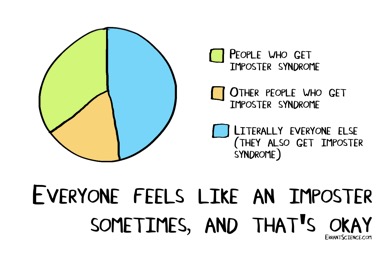An article published back in September, in Science magazine, aims to answer the age-old question, “What do I need to know before starting my Ph.D.?” by asking current Ph.D. students. and postdocs what they wish they had known about graduate school when they started. Starting a Ph.D. program can be a daunting experience, whether one is starting straight out of an undergraduate program, after a Master’s program, or even later in life. As a current third year Ph.D. student, I can remember feeling overwhelmed when I first started graduate school and wishing I had more resources to prepare me for what was to come. Six graduate students: Alexandra Schober, Julian West, Cecilia Sanchez, Geoffrey Heinzl, Jessica Nuwer, and Alyssa Frederick spoke about their own experiences. Hearing different students give their own piece of advice may be helpful in making graduate school a less intimidating experience.

Ask Questions. This was Schober’s main piece of advice. She mentioned that there are a lot of small details to know about graduate school. Whether research, or administrative related, it is best to ask questions early on instead of trying to figure everything out on your own. You will not have all the answers, which is fine. Talk to your mentor and ask questions; that’s what s/he is there for.
Planning is key. West spoke about his experience as a first-year graduate student trying to complete experiments. Before taking time to plan out his schedule, West was often in lab into the wee hours of the night. This became an issue for him until he could get organized and plan his experiments. Doing so allowed him to be productive both in and out of lab, allowing him to reclaim his evenings. . Though it might take some time, finding this balance in graduate school is extremely important, or you might find yourself burning out after a few short months.
Take care of yourself. Similarly, to what was mentioned previously, Sanchez stressed the importance of (1) not getting discouraged by shortcomings and (2) having a life outside of graduate school. She says, “It can be easy to get discouraged when things aren’t going well because your sense of personhood can get tied up in your research accomplishments.” If this happens it can be important to talk to peers, as they might be having similar experiences. One failed experiment isn’t the end of the world. While it is important to work hard during graduate school, it is just as important to not devote every minute of your life to school. Finding hobbies and activities is good for your mental health and may help you make friends.
Don’t take experimental failures personally. “I must have done something wrong, and I'm wasting everyone's time and money.” Have you ever felt this way? Heinzl did until his 3rd-4th year of graduate school. While it is hard not to take failures personally, it is important to distance yourself from shortcomings out of your control. Many variables go into a successful experiment, as well as a failed experiment. Getting bogged down and blaming yourself every time an experiment fails is a sure way to develop negative feelings toward science, making it hard to move forward. Talk to your advisor and peers, get help with troubleshooting experiments, and find mental support when things get hard. Failure is an unavoidable part of graduate school.
Mentoring styles aren’t always an optimal fit. Nuwer hits on a topic that was a huge issue for me when starting graduate school: finding the right mentor. Finding a mentor that supports you is essential to graduate school success. Are you someone who wants a more hands-off mentor, or more hands-on? Do you need your mentor to always be available, or are you okay with seeing him/her once a week? These are all questions you should consider. Everyone has a different style of mentoring so it is important to try to feel out the environment before committing to a lab.
Remember that you are good enough to be in grad school. Honestly, graduate school is taxing on mental health. Everyone doesn’t always realize this. Frederick spoke about the importance of getting over the “impostor syndrome.” You do belong in graduate school, and no, everyone around you is not better than you are. Creating a support system is crucial. Whether it is your family, friends, significant other, etc., having people that support you and motivate you through graduate school is invaluable.
Starting graduate school is not a simple task. It can be easy to get overwhelmed, not know where to turn, and feel like you don’t belong. With this in mind, it is important to develop a support system as soon as possible. You’re doing something great, and you deserve to have people acknowledge your accomplishments. If you’re reading this as someone who is thinking about going to graduate school, or has just started graduate school, know that there are many resources out there for you to take advantage of. Talk to senior students to learn about their experiences, and keep in mind that you are not alone. Hopefully, one day you can look back and help graduate students that are experiencing similar issues and doubts.
To see some of our previous articles on similar subjects to help prepare you for graduate school click here!